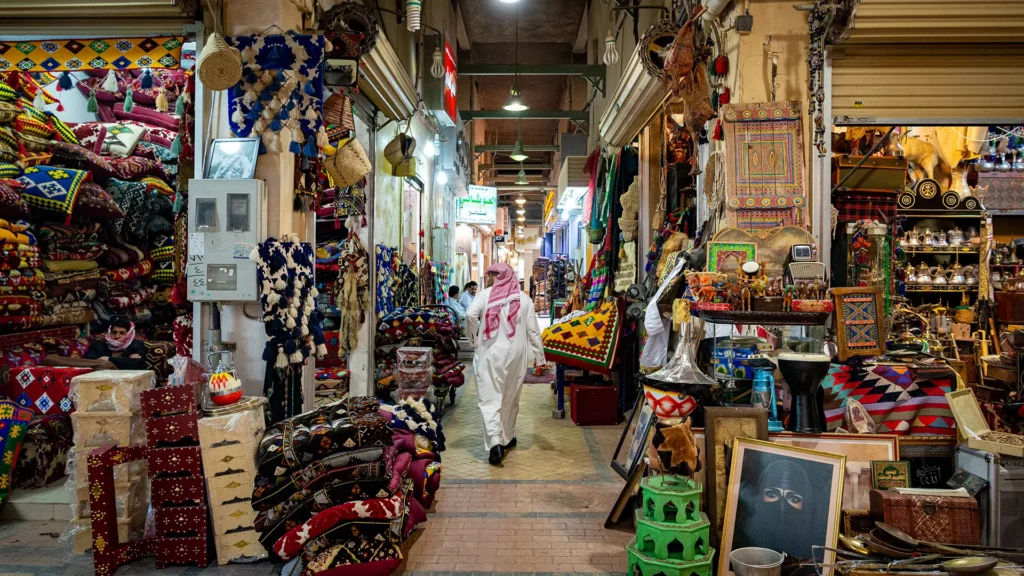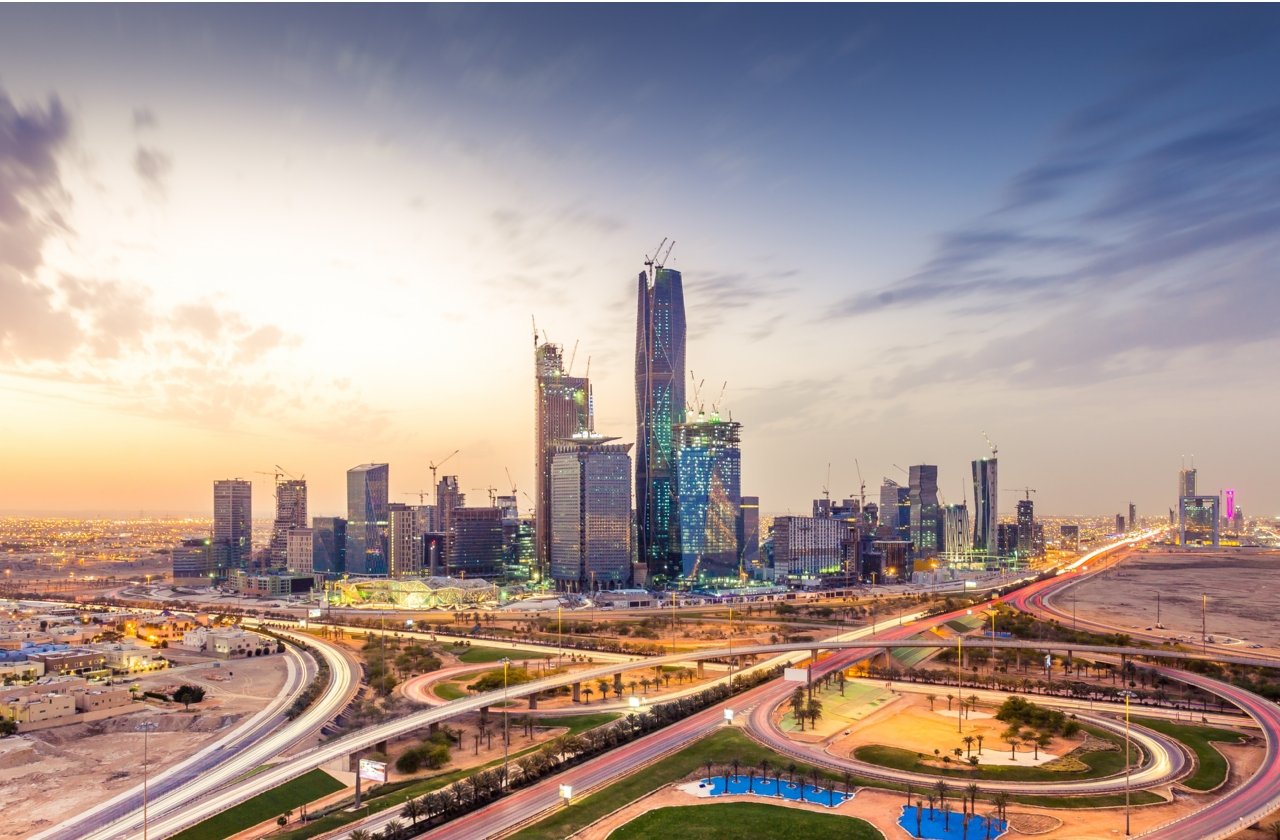When most people think of shopping in Riyadh, they envision gleaming modern malls and contemporary retail spaces. However, the true heart of shopping in Riyadh beats in its traditional souks—centuries-old markets where commerce, culture, and community converge in a vibrant tapestry of sights, sounds, and aromas. Traditional souks in Riyadh represent an authentic slice of Arabian heritage, offering treasures that simply cannot be found in modern shopping centers.
I’ll never forget my first visit to a traditional souk in Riyadh. The narrow alleyways, the glint of gold jewelry under bright lights, the intoxicating aroma of exotic spices, and the friendly haggling between merchants and customers—it was a sensory experience that transported me back centuries while remaining thoroughly alive and relevant today. These traditional souks in Riyadh aren’t museum pieces; they’re living, breathing marketplaces where locals and visitors alike come to find authentic goods, negotiate prices, and experience genuine Arabian culture.
This comprehensive guide to traditional souks in Riyadh will take you through the city’s most significant markets, teach you how to navigate these bustling bazaars, and help you find exactly what you’re looking for—whether that’s exquisite gold jewelry, aromatic spices, handcrafted textiles, or unique souvenirs that capture the essence of Saudi Arabia. Whether you’re a seasoned traveler or visiting Riyadh for the first time, understanding traditional souks in Riyadh is essential to experiencing the city’s authentic shopping culture. For a broader overview of all shopping options available in the city, be sure to check out our complete guide to shopping in Riyadh, which covers everything from luxury malls to budget shopping options.
Why Traditional Souks Matter in Riyadh’s Shopping Scene
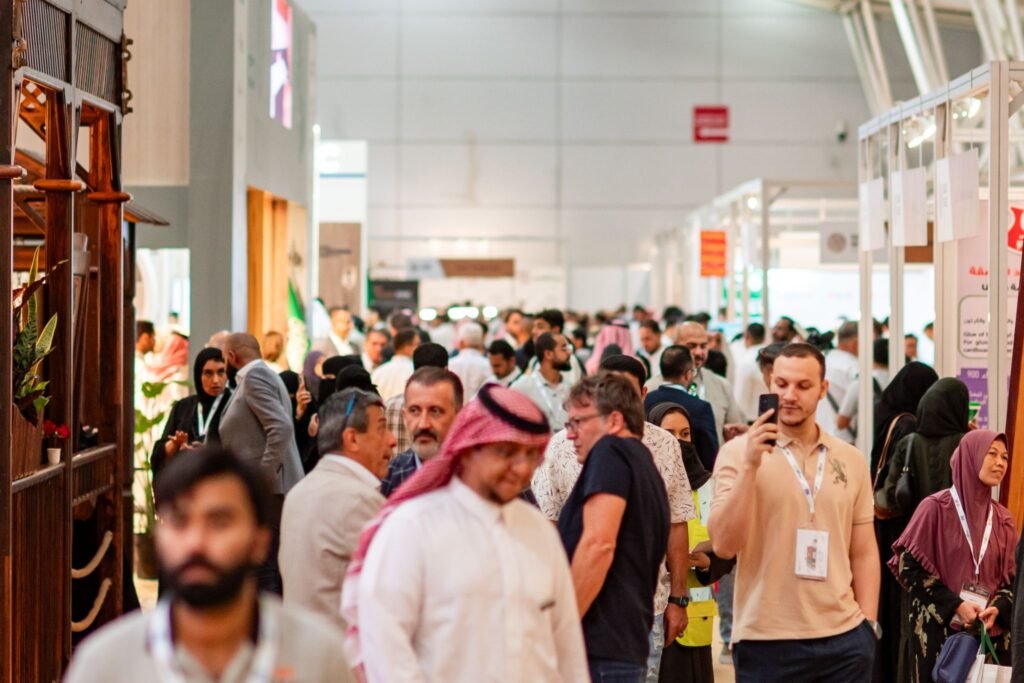
While modern malls dominate Riyadh’s retail landscape, traditional souks in Riyadh hold a special place in the city’s commercial and cultural identity. These markets have served as the backbone of Arabian commerce for centuries, and they continue to thrive despite competition from contemporary retail spaces.
The Cultural Significance of Souks
Traditional souks in Riyadh are more than just shopping destinations—they’re cultural institutions that preserve Saudi heritage and traditions. These markets reflect the values of Arabian commerce: personal relationships, fair negotiation, and the importance of community. Shopping in Riyadh’s traditional souks connects you to centuries of trading history and allows you to experience commerce the way it has been conducted in the Arabian Peninsula for generations.
The atmosphere in traditional souks in Riyadh is fundamentally different from modern malls. There’s an energy, a spontaneity, and a human element that you simply won’t find in climate-controlled shopping centers. Merchants take pride in their goods and their relationships with customers. Haggling isn’t seen as confrontational—it’s a respected art form and a way of building rapport.
Authenticity and Value
One of the primary reasons shopping in Riyadh’s traditional souks remains popular is the authenticity and value offered. Many items sold in traditional souks in Riyadh are locally produced or sourced directly from artisans and suppliers, which means better prices and more authentic products than you might find in malls. Whether you’re shopping for gold, spices, textiles, or handicrafts, the traditional souk offers unbeatable value and authenticity.
Additionally, traditional souks in Riyadh offer products that simply aren’t available in modern retail spaces. Handcrafted items, traditional garments, and artisanal goods are the specialty of these markets, making them essential destinations for anyone seeking authentic Saudi Arabian products. If you’re interested in learning about other authentic shopping experiences in Riyadh, our guide to what to buy in Riyadh provides comprehensive recommendations for souvenirs and local products.
The Major Traditional Souks in Riyadh: A Comprehensive Guide
Riyadh is home to several significant traditional souks, each with its own character, specialty, and charm. Understanding the differences between these markets will help you plan your souk shopping experience in Riyadh more effectively.
Riyadh Gold Souk: The Jewel of Traditional Shopping in Riyadh
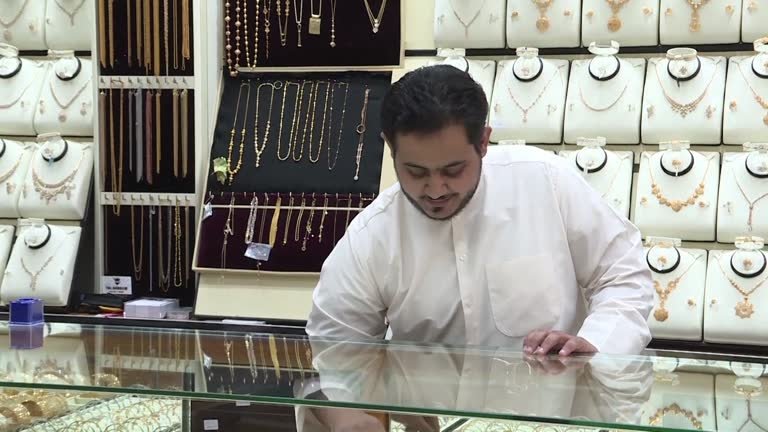
The Gold Souk, located in the historic Al Batha district, is arguably the most famous traditional souk in Riyadh. This market is a glittering wonderland for jewelry enthusiasts and anyone interested in precious metals. When shopping for gold in Riyadh, the Gold Souk is the definitive destination. For a detailed exploration of this market, our dedicated guide to the Riyadh Gold Souk provides in-depth information about buying gold and jewelry in the capital.
What You’ll Find at the Gold Souk
The Gold Souk in Riyadh features dozens of jewelry shops displaying an extraordinary collection of gold pieces. You’ll find everything from delicate bracelets and necklaces to ornate traditional designs and contemporary styles. The craftsmanship on display is exceptional, with many pieces featuring intricate detailing that reflects centuries of Arabian jewelry-making traditions.
Beyond gold, the Gold Souk also offers:
- Diamonds and precious stones: High-quality gemstones set in gold and other precious metals
- Traditional Saudi jewelry: Pieces featuring traditional designs and cultural significance
- Contemporary designs: Modern jewelry that appeals to younger shoppers
- Custom jewelry services: Many shops offer custom design and crafting services
Shopping Tips for the Gold Souk
When shopping for gold in Riyadh’s Gold Souk, understanding the pricing structure is essential. Gold prices are typically based on:
- Weight: Measured in grams, the weight of the gold piece determines the base price
- Purity: Gold purity is measured in karats (24k is pure gold, 18k is 75% pure, 14k is 58.3% pure)
- Craftsmanship: The labor and artistry involved in creating the piece adds to the price
- Market rate: Daily gold prices fluctuate based on international markets
I recommend visiting multiple shops in the Gold Souk to compare prices and designs. Don’t hesitate to ask shopkeepers about the purity and weight of pieces you’re interested in. Reputable dealers will provide certificates of authenticity for significant purchases, and they’re happy to explain the details of their craftsmanship.
Negotiation is expected when shopping for gold in Riyadh’s traditional souks. Start by offering 15-20% less than the asking price and work toward a mutually agreeable figure. Many shopkeepers will offer you traditional Arabic coffee or tea while you browse—this is part of the hospitality culture and doesn’t obligate you to purchase.
Best Time to Visit the Gold Souk
The Gold Souk is busiest during evenings and weekends when locals come to shop. If you prefer a more relaxed atmosphere, visit during weekday mornings. Avoid shopping during prayer times, when many shops close temporarily. The market typically operates from morning until late evening, with a break during midday prayers.
- Location: Gold Souk in Riyadh
- Opening hours: Sat–Thu ~09:30–11:30 & 16:00–23:30; Fri ~16:00–23:30
Al Batha Market: The Heart of Traditional Riyadh Shopping
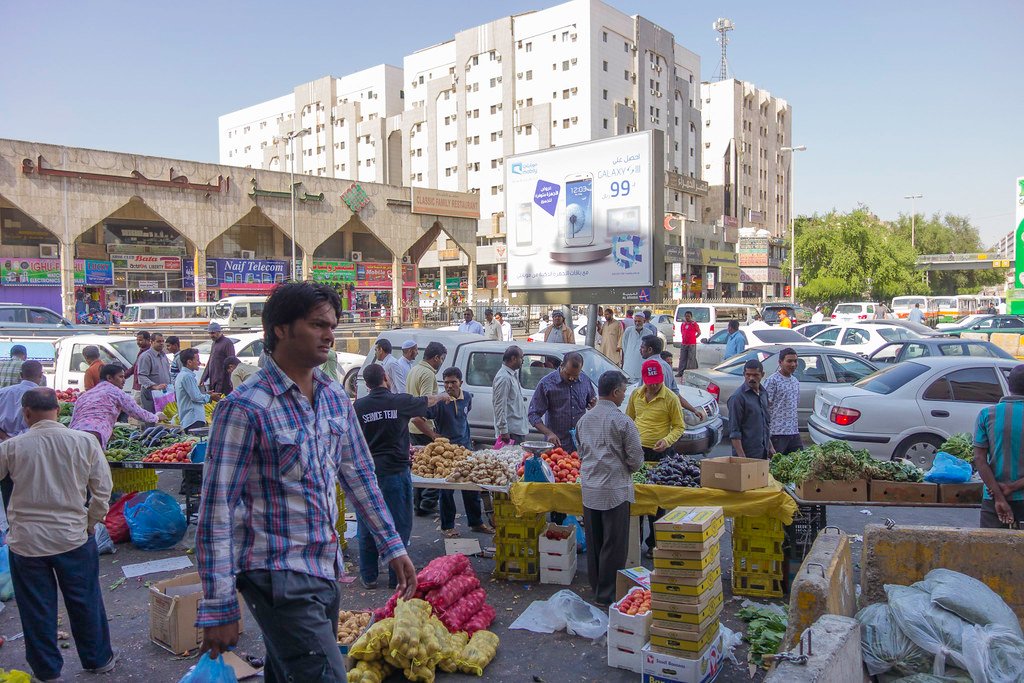
Al Batha Market is one of Riyadh’s oldest and most authentic traditional souks, representing the true essence of Arabian commerce. This historic market is located in the Al Batha district and serves as a living museum of traditional shopping in Riyadh. Shopping in Al Batha Market offers an unfiltered, genuine experience of how commerce has been conducted in Riyadh for centuries. For a comprehensive look at this iconic market, visit our detailed guide to Al Batha Market Riyadh.
The Unique Character of Al Batha Market
Al Batha Market retains much of its original character and layout, with narrow alleyways, traditional shop fronts, and an authentic atmosphere that transports you back in time. Unlike more commercialized souks, Al Batha Market remains primarily a local shopping destination, which means you’ll encounter fewer tourists and more authentic local commerce.
The market is organized into different sections, each specializing in particular goods:
Textile and Clothing Section: This area features traditional Saudi garments, including abayas, thobes, and embroidered fabrics. You’ll find both ready-made items and custom tailoring services. The craftsmanship of traditional embroidery and textile work is remarkable, with many pieces featuring intricate patterns that have been passed down through generations.
Spice and Perfume Section: Al Batha Market’s spice section is legendary among locals. Vendors sell everything from common spices to rare and exotic varieties sourced from across the Arabian Peninsula and beyond. The aroma of cardamom, saffron, cloves, and dozens of other spices creates an intoxicating atmosphere that’s uniquely Arabian.
Antiques and Handicrafts Section: This section features traditional Saudi handicrafts, antiques, and vintage items. You’ll find everything from traditional coffee pots and prayer rugs to vintage textiles and decorative items.
Shopping Experience at Al Batha Market
Shopping in Al Batha Market is a sensory adventure. The narrow lanes are lined with small shops, each packed with merchandise. Merchants call out their wares, customers haggle over prices, and the constant hum of commerce creates an atmosphere that’s both chaotic and welcoming.
The shopkeepers in Al Batha Market are generally friendly and patient with visitors. Many speak English and are happy to explain the origins and uses of their products. Unlike some tourist-oriented markets, Al Batha Market maintains an authentic local character, which means prices are often more reasonable and negotiations are more genuine.
I recommend spending at least a few hours exploring Al Batha Market. Get lost in the alleyways, chat with shopkeepers, sample spices, and browse textiles. The market rewards those who take time to explore and engage with merchants. You’ll discover items and experiences that you simply won’t find in modern shopping in Riyadh.
Best Time to Visit Al Batha Market
Early morning visits to Al Batha Market offer the advantage of less crowding and more relaxed shopkeepers. The market is particularly lively during late afternoon and evening hours when locals come to shop after work. Avoid visiting during prayer times, when many shops close. The market typically operates from early morning until late evening, with reduced activity during midday hours.
- Location: Al Batha Market
- Opening hours: Daily from ~08:00–23:00.
Souq Al-Thumairi (Deira Souq): The Bustling Traditional Marketplace
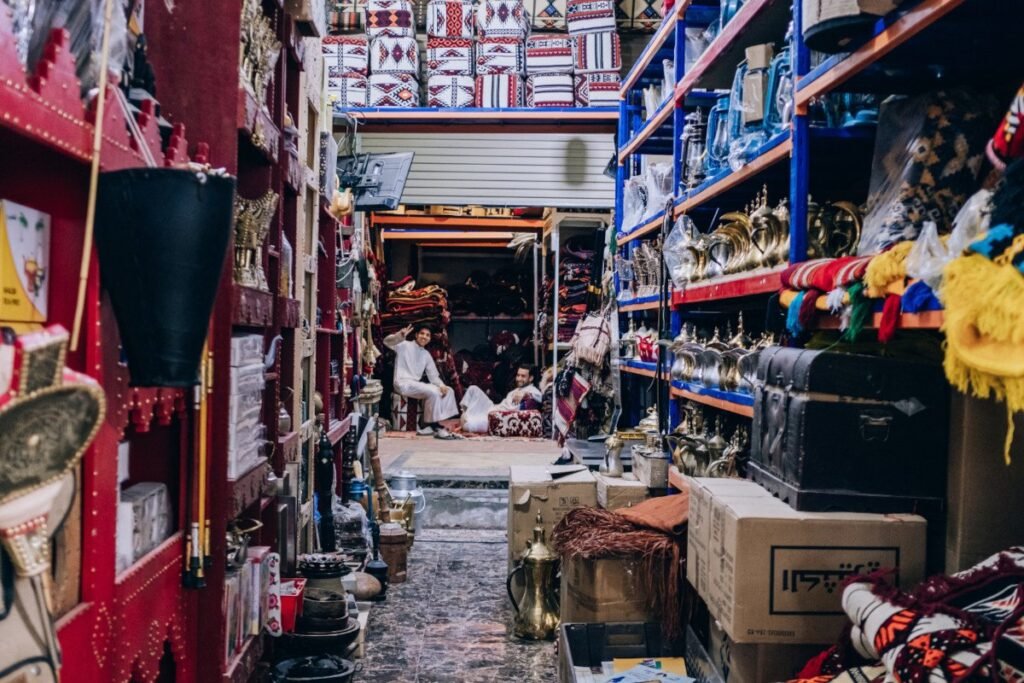
Souq Al-Thumairi, commonly known as Deira Souq, is one of Riyadh’s largest and most vibrant traditional souks. This sprawling marketplace is a sensory explosion—a place where traditional shopping in Riyadh comes alive in all its chaotic, colorful glory. Shopping in Deira Souq is an experience that captures the essence of Arabian commerce.
Layout and Organization of Deira Souq
Deira Souq is organized into numerous sections, each dedicated to specific types of goods. The market’s layout can be confusing at first, but this is part of its charm. Getting lost in the winding alleyways is almost a rite of passage for visitors shopping in Riyadh’s traditional souks.
Main sections include:
- Textile and Fabric Section: An enormous variety of fabrics, from traditional Saudi textiles to imported materials
- Spice Section: Dozens of vendors selling spices, herbs, and dried goods
- Perfume and Incense Section: Vendors offering traditional Arabian perfumes, oud fragrances, and incense
- Clothing Section: Ready-made and custom tailoring services for traditional and contemporary garments
- Household Goods Section: Everything from kitchen utensils to decorative items
- Shoe Section: A wide variety of footwear, from traditional to contemporary styles
The Sensory Experience of Deira Souq
Shopping in Deira Souq is an overwhelming sensory experience. The aroma of spices and incense fills the air, colorful fabrics drape from shop windows and ceilings, and the constant hum of merchants and customers creates an electric atmosphere. The market is crowded, energetic, and authentically Arabian.
This is where you’ll experience traditional shopping in Riyadh at its most authentic. Haggling is expected, merchants are skilled negotiators, and the process of buying and selling is as much about social interaction as it is about commerce. I’ve spent hours in Deira Souq simply browsing, chatting with shopkeepers, and soaking in the atmosphere.
Shopping Tips for Deira Souq
When shopping in Deira Souq, a few tips will enhance your experience:
- Bring cash: While some vendors now accept cards, cash is still the preferred payment method
- Arrive early: Morning visits offer less crowding and more relaxed shopkeepers
- Be prepared to negotiate: Haggling is expected and part of the shopping culture
- Wear comfortable shoes: The market is large and involves considerable walking
- Respect prayer times: Many shops close during prayer times
- Learn basic Arabic phrases: A simple greeting or thank-you in Arabic is always appreciated
- Take breaks: The market can be overwhelming; take time to rest and absorb the experience
Best Time to Visit Deira Souq
Deira Souq is busiest during evenings and weekends when locals come to shop. For a more relaxed experience with less crowding, visit during weekday mornings. The market operates from early morning until late evening, with reduced activity during midday prayer times.
- Location: Souq Al-Thumairi
- Opening hours: Sat–Thu 09:00–12:00 & 20:00–24:00; Fri 20:00–24:00.
Al Zal Market: Spices, Perfumes, and Treasures
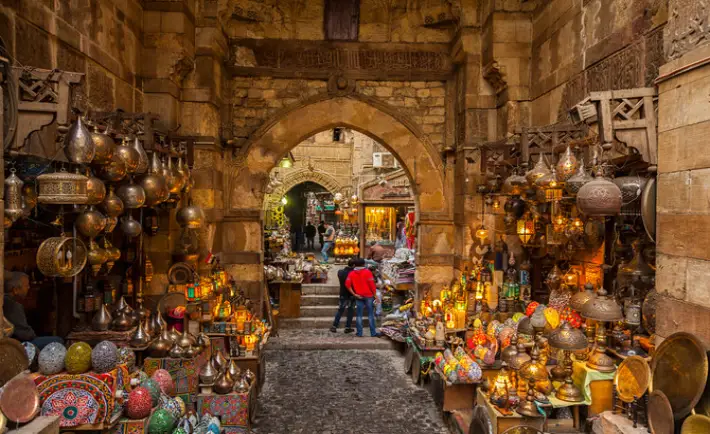
Al Zal Market is famous throughout the region for its incredible selection of spices, perfumes, and traditional goods. This traditional souk in Riyadh is a treasure trove for those seeking authentic Arabian products and souvenirs. Shopping in Al Zal Market is particularly rewarding if you’re interested in spices, fragrances, or traditional handicrafts. For an in-depth exploration of this legendary market, check out our guide to Souq Al Zal.
The Spice Experience at Al Zal Market
The spice section of Al Zal Market is legendary. Vendors display their wares in large burlap sacks and colorful containers, creating a visual feast of colors and textures. The aroma is intoxicating—a complex blend of cardamom, saffron, cloves, cinnamon, and dozens of other spices.
When shopping for spices in Al Zal Market, you’ll find:
- Common spices: Cumin, coriander, turmeric, paprika, and black pepper
- Specialty spices: Saffron, cardamom, cloves, and nutmeg
- Exotic varieties: Rare spices sourced from across the Arabian Peninsula and beyond
- Spice blends: Pre-mixed spice combinations for traditional Saudi dishes
- Dried herbs: Mint, oregano, thyme, and other dried herbs
Prices for spices in Al Zal Market are significantly lower than you’d find in malls or tourist areas. The quality is excellent, and vendors are knowledgeable about their products. Many will allow you to smell and sample spices before purchasing, and they’re happy to explain the origins and uses of different varieties.
Perfumes and Fragrances at Al Zal Market
Al Zal Market is also renowned for its perfume selection. The market is home to numerous perfume shops offering both traditional Arabian oud fragrances and modern perfumes. This is where serious fragrance enthusiasts come to shop in Riyadh’s traditional souks.
What you’ll find:
•Traditional oud fragrances: Pure oud oils and oud-based perfumes, some extremely rare and valuable
- Arabian perfumes: Traditional fragrances that have been popular in the Middle East for centuries
- Modern perfumes: Contemporary fragrances from international brands
- Perfume oils: Concentrated fragrance oils that offer excellent value
- Incense and bakhoor: Traditional incense products used in Arabian homes and businesses
When shopping for perfumes in Al Zal Market, take your time to sample different fragrances. Many vendors will apply samples to your wrist so you can experience how the fragrance develops over time. Prices are negotiable, especially for larger purchases or bulk orders.
Traditional Handicrafts and Souvenirs
Beyond spices and perfumes, Al Zal Market offers an excellent selection of traditional Saudi handicrafts and souvenirs. You’ll find:
- Traditional coffee pots and cups: Beautiful brass and copper vessels used in Arabian coffee service
- Prayer rugs and Islamic art: Decorative and functional religious items
- Textiles and embroidered goods: Traditional fabrics and handcrafted textiles
- Decorative items: Brass, copper, and wooden decorative pieces
- Jewelry: Traditional and contemporary jewelry pieces
Shopping Tips for Al Zal Market
When shopping in Al Zal Market:
- Bring containers: If buying spices in bulk, bring bags or containers to carry your purchases
- Negotiate: Prices are negotiable, particularly for bulk purchases
- Arrive early: Morning visits offer fresher stock and less crowding
- Ask questions: Vendors are knowledgeable and happy to explain their products
- Sample before buying: Most vendors allow you to smell and sample products before purchasing
- Location: Souk Al Zal in Riyadh
- Opening hours: Daily approx 09:00–12:00 & 16:00–22:00 (some sources ~15:30–22:30) including Fri.
Souq Al-Batha: Historic Charm and Authentic Goods
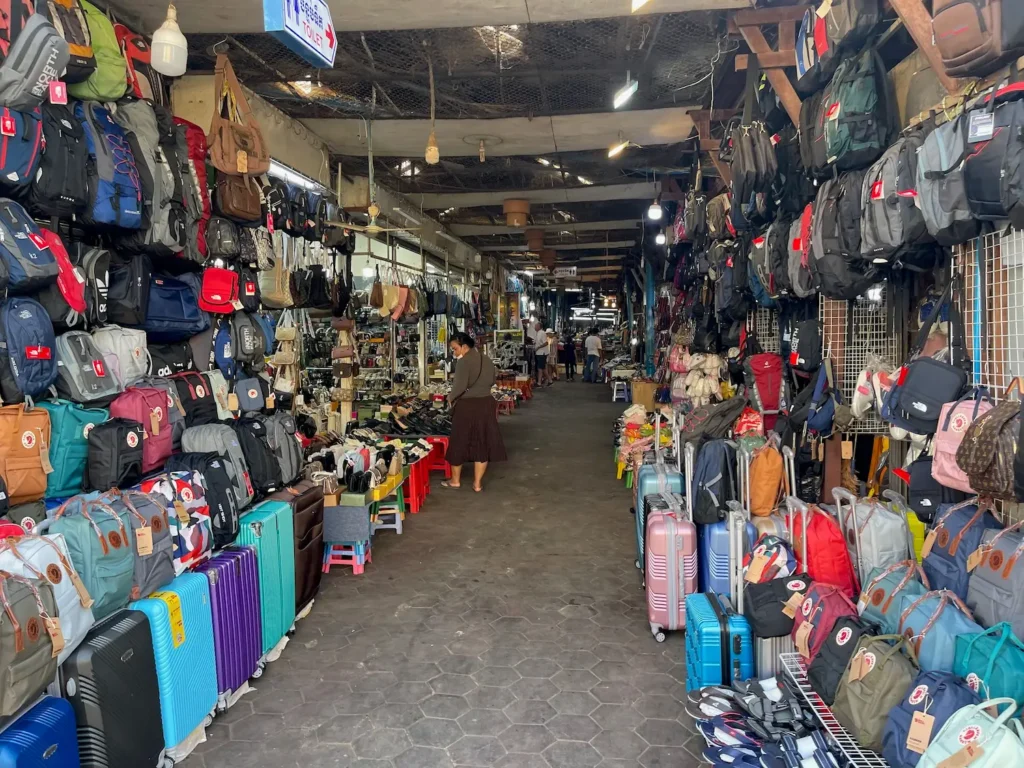
Souq Al-Batha is one of Riyadh’s most historic traditional souks, located in the heart of the old city. This market represents the authentic, pre-modern face of shopping in Riyadh. Shopping in Souq Al-Batha offers a glimpse into traditional Saudi commerce and culture that has remained largely unchanged for decades.
Character and Atmosphere
Souq Al-Batha maintains a distinctly historic character, with narrow lanes, traditional shop fronts, and an ambiance that feels genuinely old. Unlike more commercialized souks, Souq Al-Batha remains primarily a local shopping destination, which means you’ll encounter authentic local commerce rather than tourist-oriented retail.
The market is less crowded than some other traditional souks in Riyadh, which makes it an ideal destination if you prefer a more relaxed shopping experience. The shopkeepers are friendly and welcoming, and many speak English, making it easier to navigate and communicate.
What You’ll Find at Souq Al-Batha
Souq Al-Batha specializes in:
- Antiques and vintage items: Genuine antiques and vintage goods that reflect Saudi heritage
- Traditional clothing: Abayas, thobes, and traditional garments
- Handicrafts: Handmade items that reflect traditional Saudi craftsmanship
- Home goods: Traditional household items and decorative pieces
- Books and manuscripts: Including rare and vintage books
Shopping Experience at Souq Al-Batha
Shopping in Souq Al-Batha is a more contemplative experience than in busier markets. Shopkeepers take time to discuss their goods, explain their origins, and share stories about their items. This is a place where you can have meaningful conversations with merchants and develop a genuine appreciation for the items you purchase.
I particularly recommend visiting Souq Al-Batha early in the morning when the market is quiet and shopkeepers are relaxed. This is the best time to negotiate prices and have unhurried conversations about the merchandise.
- Location: Souq Al-Batha Riyadh
- Opening hours: Opening hours: Daily ~08:00–23:00.i.
What to Buy in Traditional Souks in Riyadh: A Shopper’s Guide
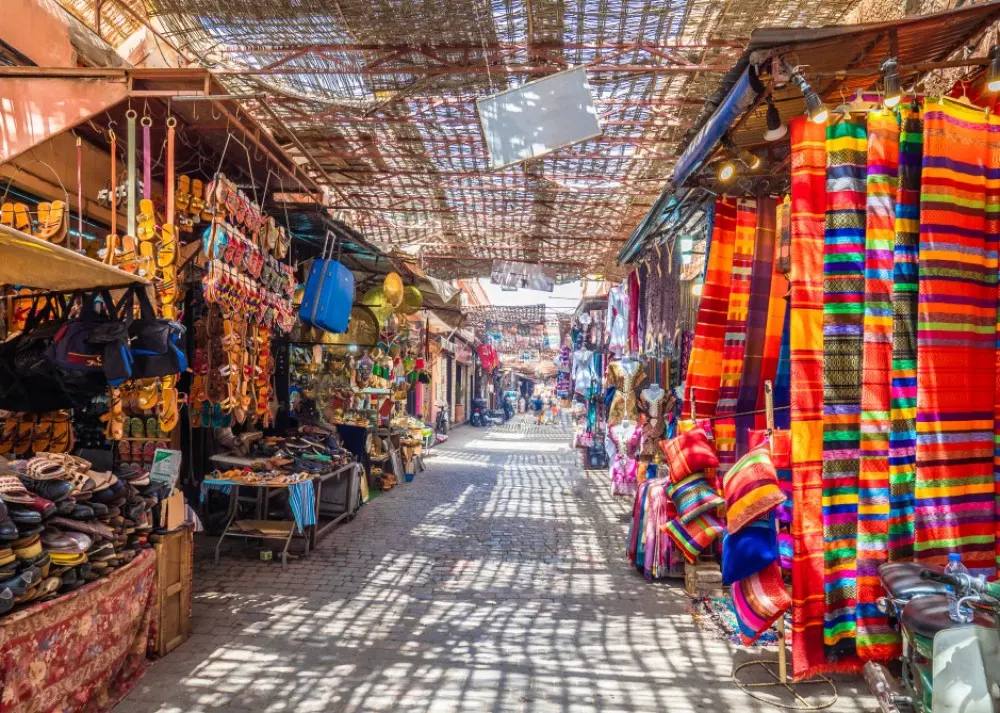
Traditional souks in Riyadh offer a remarkable variety of goods. Here’s a guide to the best items to purchase when shopping in Riyadh’s traditional markets.
Gold and Jewelry
Gold is one of the most popular purchases when shopping in Riyadh’s traditional souks. The Gold Souk offers the best selection and prices for gold jewelry. When shopping for gold:
- Verify purity: Ask for certificates of authenticity for significant purchases
- Understand pricing: Gold prices are based on weight, purity, and craftsmanship
- Negotiate: Start with an offer 15-20% below the asking price
- Compare shops: Visit multiple shops to compare prices and designs
- Consider custom work: Many shops offer custom design services
If you’re interested in luxury shopping options beyond traditional souks, our comprehensive guide to luxury shopping in Riyadh covers high-end jewelry stores and designer boutiques throughout the city.
Spices and Herbs
Spices are among the best value purchases when shopping in Riyadh’s traditional souks. Al Zal Market and Deira Souq offer exceptional selections at prices far below what you’d find in malls or tourist areas. Popular purchases include:
- Saffron: One of the world’s most expensive spices, but reasonably priced in Riyadh’s souks
- Cardamom: Essential for Arabian coffee and traditional cooking
- Cloves, cinnamon, and nutmeg: Common spices used in both sweet and savory dishes
- Cumin and coriander: Staples of Middle Eastern cuisine
- Dried herbs: Mint, oregano, and thyme
When shopping for spices, buy from vendors with high turnover to ensure freshness. Ask about the origin of specialty spices, and don’t hesitate to negotiate prices for bulk purchases.
Perfumes and Fragrances
Traditional Arabian perfumes and oud fragrances are popular purchases when shopping in Riyadh’s souks. Al Zal Market is the best destination for perfume shopping. Consider:
- Oud oils: Pure oud is expensive but highly prized
- Traditional Arabian perfumes: Fragrances that have been popular for centuries
- Perfume oils: Concentrated oils that offer excellent value
- Incense and bakhoor: Traditional incense products
When shopping for perfumes, sample multiple options before purchasing. Prices are negotiable, especially for larger quantities.
Textiles and Clothing
Traditional Saudi textiles and clothing are excellent purchases when shopping in Riyadh’s souks. Popular items include:
- Abayas: Traditional black cloaks worn by women
- Thobes: Traditional white robes worn by men
- Embroidered fabrics: Featuring traditional Saudi designs
- Prayer rugs: Decorative and functional religious items
- Scarves and wraps: Traditional and contemporary styles
When shopping for textiles, examine the quality of embroidery and stitching. Prices are negotiable, particularly for custom tailoring services.
Handicrafts and Souvenirs
Traditional Saudi handicrafts make excellent souvenirs and gifts. Look for:
- Coffee pots and cups: Beautiful brass and copper vessels
- Decorative items: Brass, copper, and wooden pieces
- Prayer beads: Traditional Islamic prayer beads
- Calligraphy and Islamic art: Decorative religious items
- Antiques: Genuine antiques reflecting Saudi heritage
Dates and Dried Fruits
While not as glamorous as gold or perfumes, dates and dried fruits are popular purchases when shopping in Riyadh’s souks. Saudi dates are world-renowned for their quality, and you’ll find numerous varieties at excellent prices in traditional markets.
Navigating Traditional Souks in Riyadh: Practical Tips
Successfully navigating and shopping in Riyadh’s traditional souks requires some preparation and understanding of local customs and practices.
Getting Around the Souks
Traditional souks in Riyadh can be confusing to navigate, particularly if you’re visiting for the first time. Here are some tips:
- Arrive with a map or directions: While getting lost can be part of the adventure, having a general sense of direction helps
- Ask for directions: Shopkeepers are generally helpful and happy to point you toward specific sections
- Wear comfortable shoes: You’ll be doing considerable walking on uneven surfaces
- Bring a small bag: For carrying purchases and personal items
- Stay hydrated: Bring water, as the markets can be hot and crowded
Understanding Souk Culture
Shopping in Riyadh’s traditional souks is as much about understanding local culture as it is about purchasing goods. Key cultural points include:
- Haggling is expected: Negotiation is a respected part of the shopping process, not confrontational
- Accept hospitality: Shopkeepers often offer tea or coffee—this is part of the culture and doesn’t obligate you to purchase
- Respect prayer times: Many shops close during prayer times; plan accordingly
- Dress modestly: Particularly when shopping in traditional souks
- Be patient: Shopping in souks takes time; rushing diminishes the experience
Payment Methods
While modern payment methods are increasingly accepted, traditional souks in Riyadh still operate primarily on a cash basis. Tips for payment:
- Bring cash: ATMs are available but not always convenient in souk areas
- Have small bills: Many vendors prefer smaller denominations
- Negotiate before paying: Agree on the final price before handing over money
- Ask for receipts: For significant purchases, request a receipt or certificate of authenticity
Language Considerations
While English is increasingly spoken, particularly by younger shopkeepers, learning basic Arabic phrases enhances your shopping experience:
- “As-salamu alaikum” (Peace be upon you): Traditional greeting
- “Wa alaikum as-salam” (And upon you be peace): Response to greeting
- “Shukran” (Thank you): Always appreciated
- “Afwan” (You’re welcome): Polite response
- “Inshallah” (God willing): Used when discussing future plans
- “Alhamdulillah” (Praise be to God): Used in response to “How are you?”
The Art of Haggling: Negotiation Tips for Shopping in Riyadh’s Souks
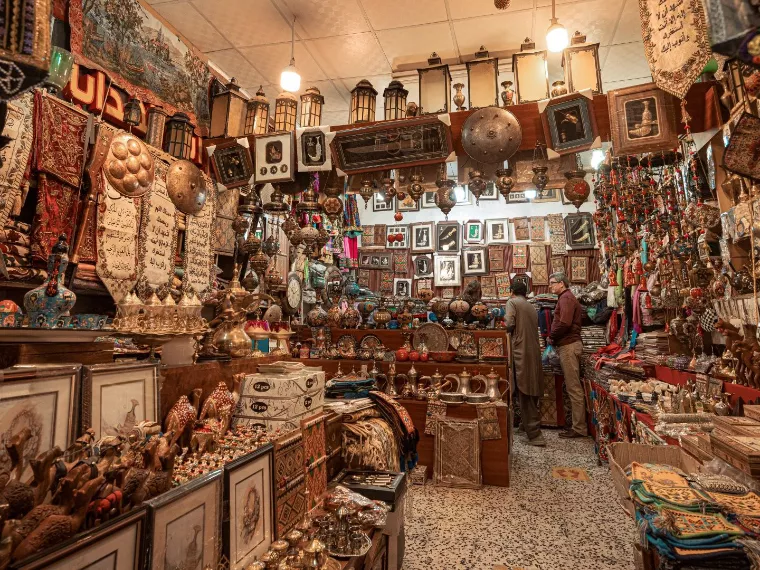
Haggling is an integral part of shopping in Riyadh’s traditional souks. Understanding the art of negotiation will enhance your experience and potentially save you money.
The Haggling Process
Haggling in traditional souks in Riyadh follows a generally predictable pattern:
- Express interest: Show genuine interest in an item
- Ask the price: The shopkeeper will quote a price (usually higher than the final price)
- Make an offer: Offer 20-30% less than the asking price
- Negotiate: Work toward a mutually agreeable price through back-and-forth offers
- Accept or decline: Once you reach a price you’re comfortable with, purchase or politely decline
Tips for Successful Haggling
When haggling while shopping in Riyadh’s traditional souks:
- Be respectful: Approach negotiation as a friendly interaction, not a confrontation
- Show genuine interest: Merchants appreciate customers who are genuinely interested in their goods
- Start low: Begin with an offer 20-30% below the asking price
- Be willing to walk away: If you can’t reach an acceptable price, politely decline
- Build rapport: Chat with the shopkeeper, accept offered tea or coffee, and develop a friendly relationship
- Bundle purchases: Offer to buy multiple items in exchange for a better overall price
- Pay in cash: Shopkeepers are more willing to negotiate on cash purchases
- Shop during quiet times: Shopkeepers are more relaxed and willing to negotiate when business is slow
What Not to Do When Haggling
When shopping in Riyadh’s traditional souks, avoid:
- Being disrespectful: Treat merchants with respect and dignity
- Haggling over trivial amounts: Once you’re close to an acceptable price, don’t quibble over small differences
- .Insulting merchandise: Don’t disparage the quality of goods; it’s disrespectful to the merchant
- Haggling for items with fixed prices: Some items, particularly in more touristy areas, have fixed prices
- Being aggressive or confrontational: Maintain a friendly, conversational tone throughout
Best Times to Visit Traditional Souks in Riyadh
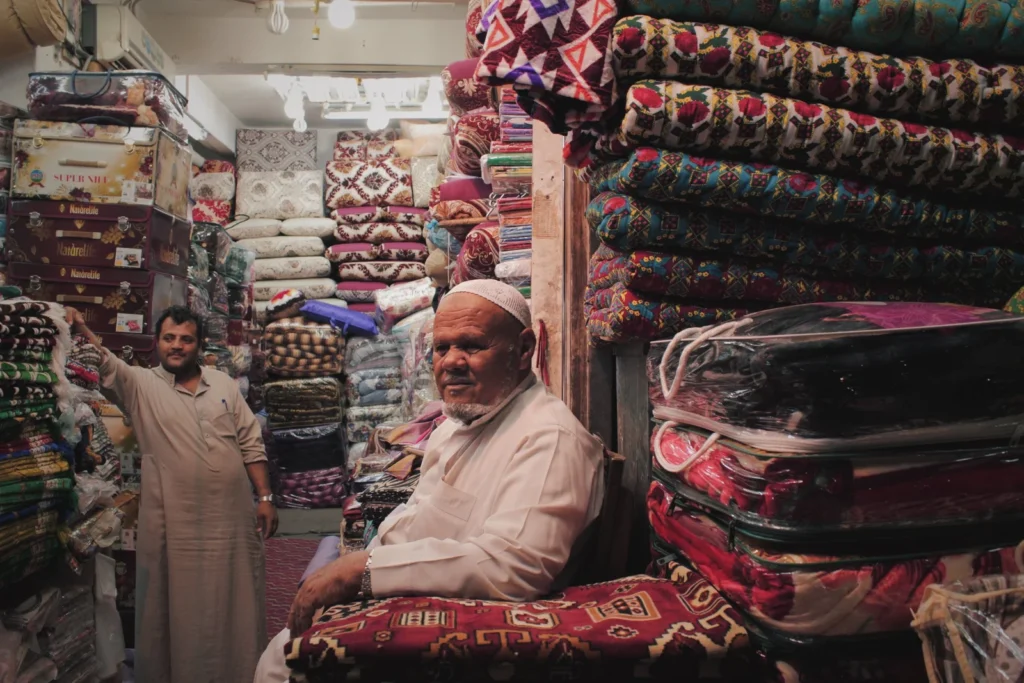
Timing your visit to traditional souks in Riyadh can significantly impact your shopping experience.
Seasonal Considerations
Best seasons for shopping in Riyadh’s traditional souks:
- October to March: Cooler weather makes souk shopping more comfortable
- Ramadan: Special atmosphere and extended shopping hours, though some shops may have reduced hours during fasting times
- Post-Eid periods: Special promotions and festive atmosphere
Avoid:
- June to September: Extreme heat makes souk shopping uncomfortable
- Prayer times: Many shops close during the five daily prayers
If you’re planning your shopping trip around seasonal sales, be sure to check out our guide to seasonal sales and shopping festivals in Riyadh for information about major shopping events and promotions throughout the year.
Daily Timing
Best times to visit traditional souks in Riyadh:
- Early morning (7-10 AM): Less crowded, shopkeepers are relaxed, fresher merchandise
- Late afternoon (4-7 PM): Moderate crowds, good atmosphere
- Evening (7 PM onwards): Busier, more energetic, but more crowded
Times to avoid:
- Midday (12-3 PM): Extremely hot, many shops closed for prayers and lunch
- Prayer times: Shops close temporarily during the five daily prayers
Complementary Shopping Experiences in Riyadh
While traditional souks offer authentic cultural experiences and exceptional value, Riyadh’s shopping scene is diverse and multifaceted. If you’re interested in exploring other shopping options, consider visiting the city’s best shopping malls for modern retail experiences, or check out our guide to budget shopping in Riyadh for tips on finding great deals throughout the city.
For those seeking premium shopping experiences, our comprehensive guide to luxury shopping in Riyadh covers high-end brands and exclusive boutiques. Additionally, if you’re interested in learning about shopping events and promotions, our article on Carrefour offers in Riyadh provides information about major retail promotions and seasonal sales.
Q: Is haggling expected in traditional souks in Riyadh?
A: Yes, haggling is expected and considered a normal part of the shopping process. Start with an offer 20-30% below the asking price and work toward a mutually agreeable figure.
Q: What’s the best time to visit traditional souks in Riyadh?
A: Early morning visits (7-10 AM) offer less crowding and more relaxed shopkeepers. Avoid midday heat and prayer times. The cooler months (October-March) are ideal for souk shopping.
Q: Should I bring cash or can I use credit cards in traditional souks?
A: While credit cards are increasingly accepted, cash is still the preferred payment method in most traditional souks. Bring sufficient cash for your shopping.
Q: What are the best items to purchase in traditional souks in Riyadh?
A: Gold jewelry, spices, perfumes, traditional textiles, and handicrafts are among the best purchases. Prices are significantly lower than in malls for these items.
Q: How do I verify the authenticity of gold purchased in traditional souks?
A: Ask for certificates of authenticity from reputable dealers. Check the purity mark on the jewelry, and compare prices across multiple shops before purchasing.
Q: Are traditional souks in Riyadh safe for tourists?
A: Yes, traditional souks in Riyadh are generally safe. Maintain normal travel precautions, keep valuables secure, and be aware of your surroundings as you would in any crowded marketplace.
Q: What should I wear when visiting traditional souks in Riyadh?
A: Dress modestly, particularly when shopping in traditional souks. Women should cover shoulders and knees; men should wear long pants and shirts.
Q: How long should I plan to spend in traditional souks in Riyadh?
A: Plan at least 2-3 hours for a meaningful shopping experience. Many visitors spend an entire day exploring different souks.
Q: Can I take photographs in traditional souks in Riyadh?
A: Generally yes, but always ask permission before photographing shopkeepers or their merchandise. Some merchants may ask for payment for photographs.
Q: What’s the difference between traditional souks and modern malls for shopping in Riyadh?
A: Traditional souks offer authentic cultural experiences, better prices on specific items (gold, spices, textiles), and genuine local commerce. Modern malls offer convenience, air conditioning, and a wider variety of international brands. For more information, check out our complete guide to shopping in Riyadh, which covers both traditional and modern shopping options.


